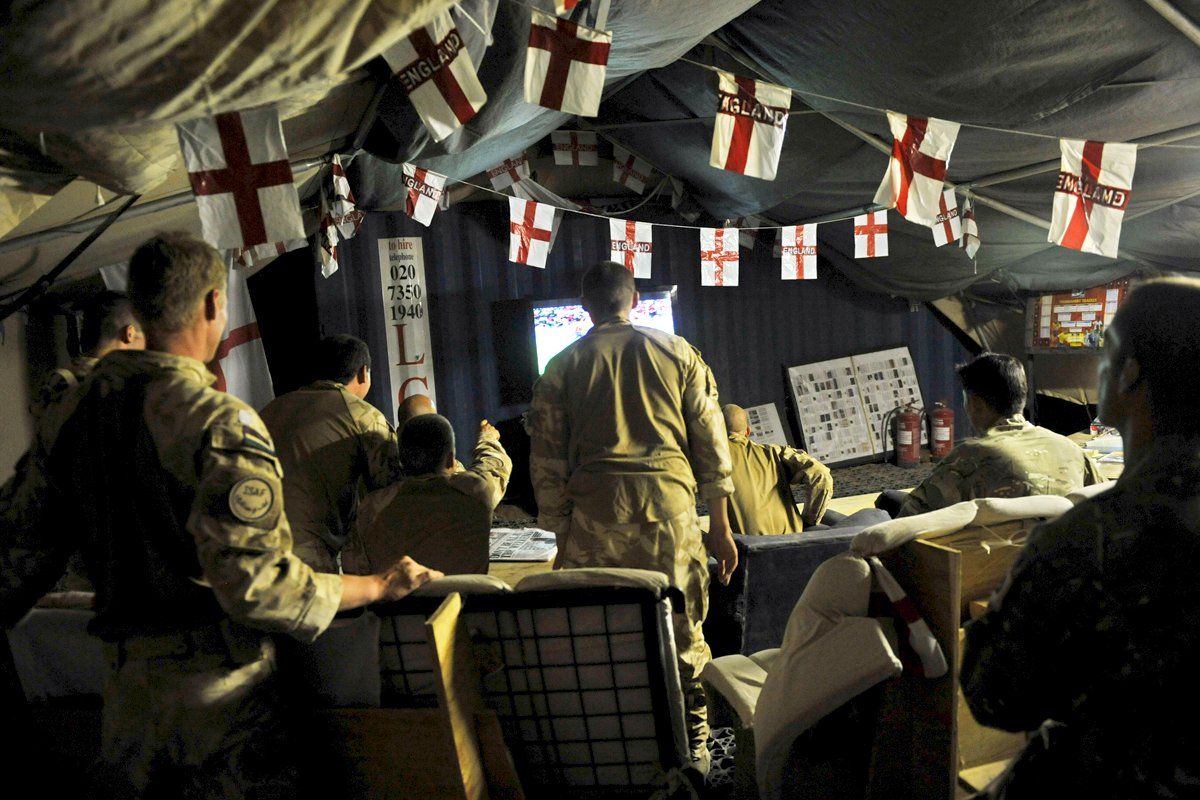
Wise politicians act fast when an ally's military honor is called into question. That's why last week Secretary of State Hillary Clinton was talking of her "deep respect and admiration for the extraordinary effort of U.K. forces in Afghanistan." For his part, President Hamid Karzai was eagerly stressing his gratitude for "the sacrifice of British soldiers" in his country and "Britain's role as a steadfast supporter of Afghanistan and the Afghan people."
Small wonder. The WikiLeaks cables play heavily on British sensitivities. A cursory reading gives the tricky impression of British forces failing in the battle to control Helmand province, where they have been in near- constant combat with the Taliban since 2006. Karzai comments that the British "aren't up to the task" of securing Helmand and asks for the dispatch of American Marines. Meanwhile, the former NATO commander in the country, U.S. Gen. Dan McNeill, asserts that the British have made "a mess of things" and ceded ground to insurgents and "narco-traffickers."
Fair or not, that's wounding stuff. Over the past nine years, the British have lost more than 340 men in Afghanistan, less than a third of the U.S. total but more than twice as many as the Canadians, who take third place on the casualty rolls. At home, the public has responded with a surge of support for the military unmatched by any enthusiasm for the war. (Polls show opposition running at more than 60 percent.) Military charities are flooded with cash; crowds line the street to pay respect when the bodies of servicemen are returned home. To the British voter, any suggestion of Afghan ingratitude or American carping is infuriating.

For the Army, it's painful too. OK, there's no direct criticism of the troops' courage, but the WikiLeaks disclosures strike at British pride in their mastery of the gentler arts of counterinsurgency, developed in post-imperial conflicts from Kenya to Malaya. So it's painful to learn from the leaked documents that the governor of Helmand believed the British should engage more with local people. Inevitably, such charges stir memories of American attacks on British tactics in southern Iraq, where Iraqi forces—with heavy U.S. backing—were obliged to retake the city of Basra from local militias.
Happily for British pride, the picture is more complex than indicated by a casual browse of WikiLeaks. Much of the U.S. criticism is easily ascribed to the usual rivalry between allied armies that's as old as warfare itself. (It doesn't help that U.S. Marines have taken over command in Helmand from the British as part of last year's surge.) The question of who's now best at counterinsurgency defies an easy answer. British observers concede that the Americans learned quickly from early failures in Iraq while asserting that today's "population-centric" U.S. strategy was based on British methods, as observed in Afghanistan. For that matter, much of the Afghan criticism seems tainted by flattery from politicians keen to please their most powerful ally.
More important, the British military can justly finger the politicians for any shortcomings. In simple numerical terms, the British force in Helmand, numbering a maximum of 10,000, was never sufficient. "Helmand wasn't working [before the surge], and the reason was that the British were underresourced," says Michael Codner of the Royal United Services Institute in London. When fighting on their own, the British lacked not only manpower but also equipment, particularly helicopters. The surge has since seen the arrival of 20,000 U.S. Marines powerfully supported by their own Special Forces as well as combat engineers who can also supply the construction work that's likely to win over the local population.
Besides, the British weren't following their own preferred tactics at first. In the early stages of their deployment, at the request of the Afghan government, limited troops were scattered in district centers or outposts of the central government rather than focusing on a hearts-and-minds strategy. Bases quickly became targets, pushing the British into vicious defensive actions. In the words of Gen. Sir Richard Dannatt, the former head of the British Army, writing in the British press, his troops became "like tethered goats, magnets for the Taliban and every misinformed fighter who feared we had come to take his livelihood away." One such base, Sangin, was to acquire totemic significance as a killing ground, accounting for more than a third of all British losses. Whatever the leaked material suggests, the politicians would do well to apologize.
Uncommon Knowledge
Newsweek is committed to challenging conventional wisdom and finding connections in the search for common ground.
Newsweek is committed to challenging conventional wisdom and finding connections in the search for common ground.





